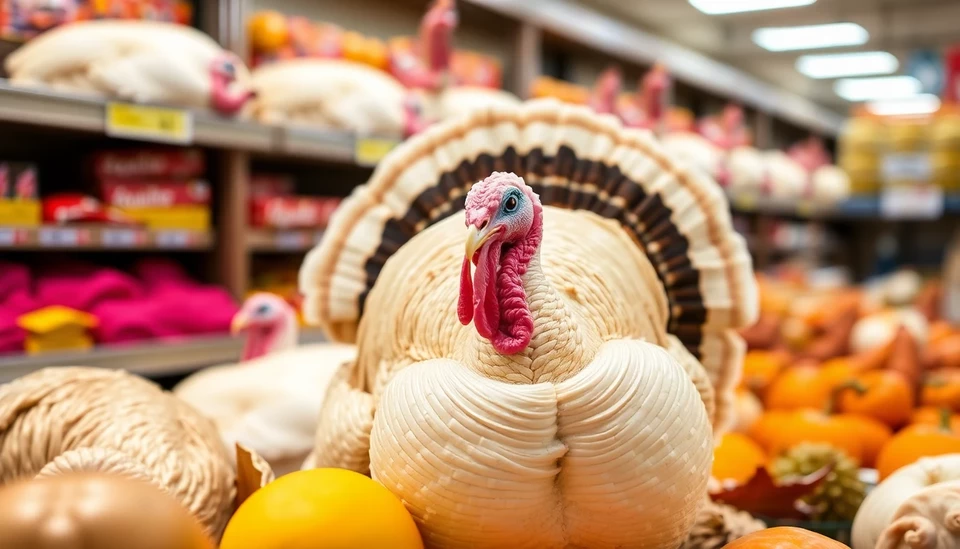
In an unexpected turn for the Thanksgiving season of 2024, turkey prices have seen a notable decrease, providing some relief to consumers facing the holiday's rising food costs. Despite the drop in prices, however, sales figures have not followed suit, leaving retailers and farmers alike contemplating the reasons behind this phenomenon.
According to recent reports, the average price of a turkey this year has fallen to approximately $1.15 per pound, down from $1.39 per pound in 2023. This significant reduction in price can be attributed to various factors including improved supply chain efficiencies, a mild avian influenza season, and an increase in production levels as farmers aimed to meet consumer demands for the holiday feast.
Despite the favorable pricing for consumers, retailers have reported disappointing sales figures. Data indicates that turkey sales have declined by around 5% compared to last year. Analysts suggest this could stem from shifting consumer preferences, as many shoppers opt for alternative protein sources or smaller gatherings that necessitate less turkey than in the past. The ongoing economic pressures and inflation concerns may also be dissuading consumers from purchasing traditional Thanksgiving fare in larger quantities.
Market experts are closely scrutinizing these trends, as they indicate a potential transformation in Thanksgiving traditions. Once dominated by large family gatherings centered around turkey dinners, consumer habits appear to be evolving. A blend of health consciousness and changing culinary interests may be influencing how people celebrate the holiday, pushing them toward diverse meal options rather than the classic turkey centerpiece.
Retailers are responding to these trends by diversifying their product offerings, providing a range of meat alternatives and gourmet options to appeal to the modern consumer. They are also investing in promotional strategies to highlight the cost advantages associated with purchasing turkey, hoping to spur sales as Thanksgiving approaches.
While turkey producers remain optimistic about future seasons, the decrease in sales brings a cautious note to the industry's outlook. It spotlighted a pressing need for adaptation within the turkey market, as consumer preferences continue to shift in the aftermath of pandemic-era changes and a growing desire for diverse dining experiences.
This Thanksgiving season has thus marked a noteworthy chapter in consumer behavior relative to food purchases, showcasing how economic conditions and evolving tastes can reshape even the most traditional of holidays. As the market continues to adjust, stakeholders at every level will be tracking the changes closely, eager to understand how they can best meet the needs of consumers moving forward.
Only time will tell if the price drop can entice more shoppers back to the turkey aisle or if this year marks a tipping point towards a new norm in holiday dining.
#Thanksgiving #TurkeyPrices #FoodTrends #ConsumerBehavior #Retail #GrocerySales #AvianInfluenza #HolidayMeals #FoodEconomics #MarketTrends
Author: Daniel Foster




